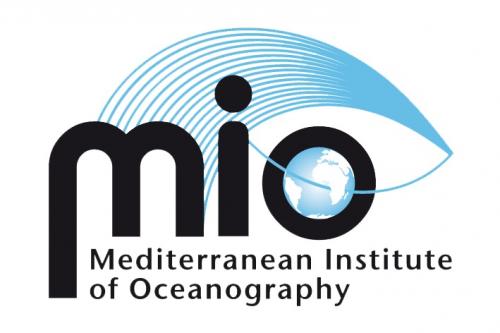The position of Director of the Institut Méditerranéen d'Océanologie (MIO, UMR 7294, CNRS - Aix-Marseille University - University of Toulon - IRD) will be vacant as from 1st January 2023.
Context
The MIO is an oceanology research laboratory belonging to the University of Aix-Marseille, the University of Toulon, the CNRS and the IRD. It is part of the OSU (Observatoire des Sciences de l'Univers) Pytheas. Its objectives are to gain a better understanding of the oceanic system and its evolution in response to global change. It is a centre of expertise in marine biology, ecology, biodiversity, microbiology, fisheries, physics, chemistry, biogeochemistry and sedimentology. It focuses on the world ocean, its interfaces with the continent, the atmosphere and sediments.
https://www.mio.osupytheas.fr/fr
The MIO is currently :
- A staff of 250, including 113 researchers (CNRS and IRD) and university lecturers (AMU and UTLN), around 50 engineers and technicians, more than 80 doctoral and post-doctoral students, and an administrative team dedicated to research.
- 3 metropolitan sites: the Marseille-Luminy campus, the University of Toulon and the Ifremer marine base at La Seyne-sur-Mer.
- Several projects in the South: Vietnam, Tunisia, Chile, the South Pacific (New Caledonia and Fiji).
- 5 subject teams.
- 4 cross-disciplinary research themes, 2 clusters and 9 analytical platforms.
- A marine environment observation service within the OSU Pythéas, supported by the Antédon II coastal station ship.
M I O scientists carry out research in the following areas:
- ocean circulation and atmospheric circulation ;
- understanding marine ecosystems and biodiversity, from bacteria to fish;
- biological functioning in extreme environments and ocean pollution.
Research work involves oceanographic campaigns, the use of submerged instruments equipped with sensors (buoys, towed instruments, gliders or underwater drones), radars installed on the coast and satellite image analysis, as well as analytical and experimental laboratory resources. This research involves numerical analysis and modelling. These research themes are part of national research programmes such as MISTRALS/MERMeX, MISTRALS/HyMeX, LEFE and EC2CO, and international ones such as the IGBP's IMBER, SOLAS and LOICZ programmes, and require work on all the world's oceans. The future management will take advantage of this context to renew the UMR's project and prepare the 2023-2027 contract. The deadlines for a hearing by the HCERES committee at the end of 2021-beginning of 2022 mean that the unit's project should be finalised by June 2021 and prepared by November 2020. The current team will be responsible for drafting the 2018-2022 balance sheet.
Expected
Candidate profile :
- Researcher or teacher-researcher ;
- Knowledge of the national, European and international scientific communities in the MIO's areas of expertise;
- Experience in scientific foresight and programming, and in managing research projects or teams;
- Availability, rigour, commitment, open-mindedness, leadership skills;
- Fluent in French and English.
Assumption of office
The successful candidate will take up his/her post no later than 1st January 2023. However, a recovery period is desirable, with a presence in the laboratory from the end of summer 2022.
Candidates interested in the position of Director of the MIO should submit their application by 15 November 2020 a curriculum vitae and a letter of motivation to the contacts identified below, who will be happy to provide any information about the laboratory.
Contacts Tutelles
Bruno Blanke - Deputy Scientific Director for the Ocean-Atmosphere division of CNRSINSU
Sophie Chauvet - Vice-president for science - biology at AMU
Frédéric Guinneton - Vice-Chairman of the UTLN Research Committee
Olivier Pringault - Director of the IRD Oceans Department
Contact MIO
Richard Sempéré - Current director of the unit





